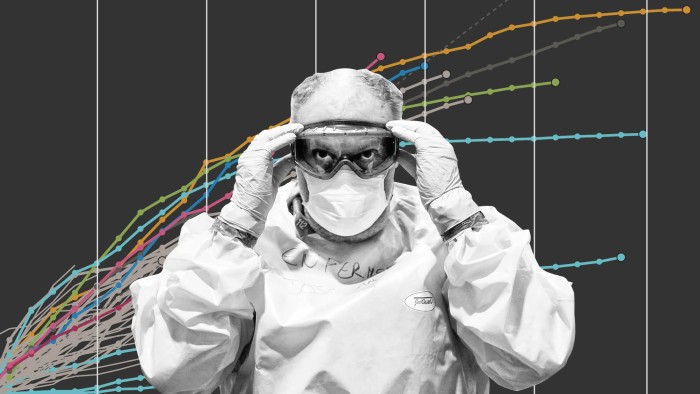Oxford Covid vaccine trial confirms encouraging results for the elderly

Roula Khalaf, Editor of the FT, selects her favourite stories in this weekly newsletter.
The coronavirus vaccine under development by Oxford university and AstraZeneca has elicited a strong immune response and been shown to be safe in older adults, a group at disproportionate risk of developing severe Covid-19.
In phase 2 trial results published in The Lancet, researchers said the vaccine had fewer adverse effects in older people than in younger adults, and that it produced a similar immune response in both groups.
The Financial Times first reported on the promising data last month.
Testing of the Oxford-AstraZeneca vaccine is at an earlier stage than work on vaccines from Moderna and Pfizer-BioNTech, which trials suggest could protect about 95 per cent of people from infection.
No data have been published on whether the Oxford-AstraZeneca vaccine prevents people from developing Covid-19. But phase 3 trials measuring its so-called efficacy are under way with results expected before the end of the year. Efficacy is a key metric for regulators weighing approval.
Some vaccines against other diseases have been shown to generate an immune system response but one that was not strong enough to fight off infection.
The Oxford researchers studied 560 healthy adults, including 240 over the age of 70, and found the vaccine induced responses in both parts of the immune system: it provoked a T-cell response within 14 days of the first dose, and an antibody response within 28 days.
Oxford’s Sarah Gilbert, a co-author of the study, said it answered some questions on the protection of older adults, whose immune systems are usually weaker than those of younger people.
“But questions remain about effectiveness and length of protection, and we need to confirm our results in older adults with underlying conditions to ensure that our vaccine protects those most at risk of severe Covid-19,” she said.
Because the study enrolled participants during lockdown earlier this year, when vulnerable individuals were required to self-isolate, it did not include those who had other illnesses. Almost all participants were white and non-smokers.
The Oxford-AstraZeneca vaccine, the most promising jab being worked on in the UK, is known as ChAdOx1 nCoV-19. The UK has ordered 100m doses of it and domestic manufacturing has already begun while trials continue.
Pfizer-BioNTech and Moderna spurred widespread optimism and market rallies after announcing better than expected phase 3 efficacy figures for their jabs.
No regulator has yet approved either of the two vaccines, but the European Medicines Agency and its UK equivalent, the Medicines and Healthcare products Regulatory Agency, are conducting accelerated reviews of these two jabs and others.
Russia has licensed its Sputnik vaccine, but western regulators have not.
Latest coronavirus news

Follow FT's live coverage and analysis of the global pandemic and the rapidly evolving economic crisis here.
Moderna’s product is the only other vaccine shown to have generated an immune response in older people comparable to the Oxford inoculation. Vaccines made by Pfizer-BioNTech, CanSino and Sinopharm have produced weaker responses in older adults than with younger ones, The Lancet noted.
Mene Pangalos, executive vice-president for biopharmaceutical research and development at AstraZeneca, said it was “essential” that any vaccine be effective across a broad age range.
Comments